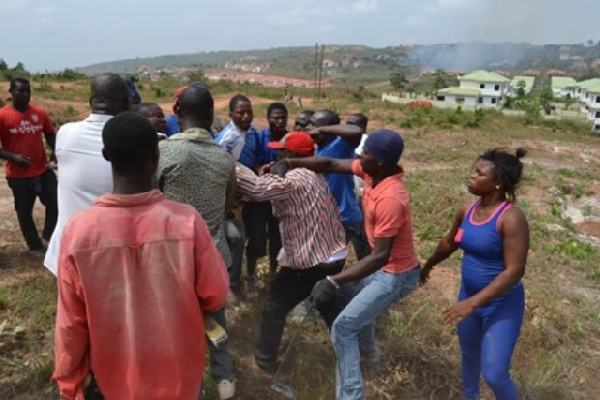By Lucille N.Y Cash-Abbey Esq
Navigating land disputes in Ghana can be stressful and overwhelming, especially for homeowners and investors who discover their property rights are challenged. Understanding the proper legal steps to protect your land is crucial to safeguarding your investment and avoiding loss.
Understanding land disputes in Ghana
Not long ago, a case involved a widow who had purchased two plots of land in Amasaman, a suburb in Ghana, during the 1990s. She built a modest two-bedroom home on a quarter of the land for herself and her three children, planning to expand later.
In 2021, she received a distressing call while at work: two men, accompanied by armed individuals, had stormed her property, claiming ownership and demanding she vacate immediately.
This experience mirrors that of many Ghanaians and non-Ghanaians who discover land has been sold multiple times or that transactions were not with the rightful owners.
Acquiring land in Ghana is complex, and disputes can escalate quickly. Knowing the correct legal steps ensures your property rights are protected.
How to protect your land in Ghana
Engage the service of a lawyer
The first and most crucial step is hiring a lawyer. Land laws in Ghana are often intricate, requiring expert interpretation. A lawyer ensures proper documentation, protects your legal rights, provides court representation, and navigates issues like multiple claims or customary land ownership. Legal expertise greatly increases the chances of a favorable outcome.
- Gather all documentation
- Collect all relevant documents to support your claim:
- Title documents (indenture, lease, land certificate, deed of assignment)
- Proof of payment (receipts, bank transfers, sale agreements)
- Registered site or cadastral plans from the Lands Commission
- Photographic or video evidence of possession or development
Confirm legitimacy of ownership
Verify your ownership by conducting a search at the Lands Commission or relevant regional authority. If the land is family or stool land, ensure the transaction was executed with proper consent.
Document threats or encroachment
Record verbal threats in writing and take pictures or videos of unauthorized activity or structures on your property. Keep copies of any letters or notices received.
Report matters to the police
In cases of harassment, report to the police to create an official record of trespass or threats.
Initiate legal proceedings
If dialogue fails, legal action is often the most effective solution. A lawyer can help file court actions in the High Court or Circuit Court, depending on the land value. Avoid self-help measures such as using land guards, which may be considered criminal.
Monitor and secure the property
For undeveloped land, erect fences, signs, or employ security personnel to prevent unauthorized access. Maintain visible possession until the matter is resolved.
Engage traditional or local authorities
In areas where chiefs or family heads hold influence, seek formal declarations or testimonies to support your claim, especially if the sale was under customary law.
Key takeaways
Land ownership is a significant investment and can be vulnerable in Ghana. Early and informed legal action is essential to avoid devastating consequences. Prevention is better than cure, but when disputes arise, following the correct steps ensures you protect what is rightfully yours.
Source: Mondaq



